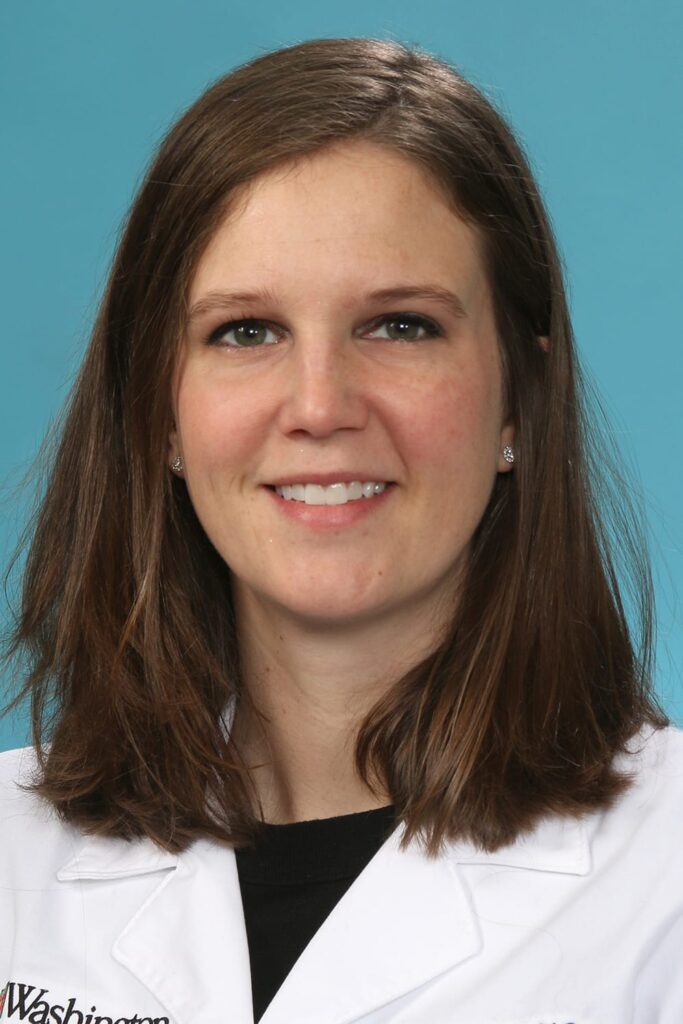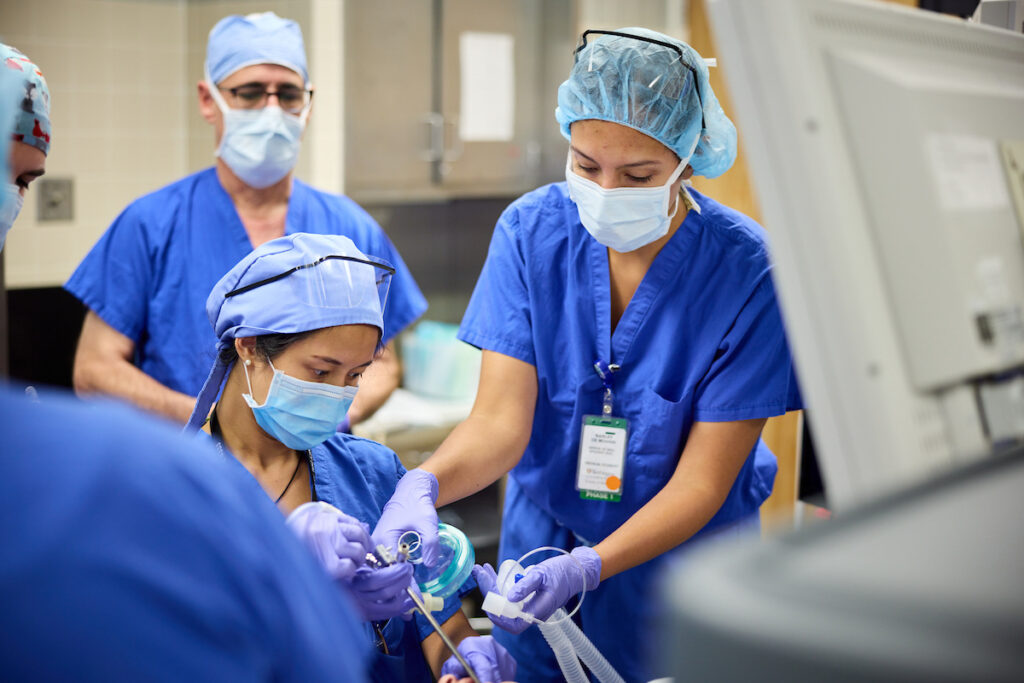One of the newest elements to arise from the Washington University medical school curriculum renewal – known as the Gateway Curriculum – is the Advanced Clinical Rotation or ACR. Pediatric otolaryngologist Kate Dunsky, MD, and neurotologist Cameron Wick, MD, recently worked alongside ACR Director Stephen Lawrence, MD, to discuss rotation goals, student evaluations, and the final design of the rotation in otolaryngology.

The Gateway Curriculum represents a revitalized curriculum framework for the School of Medicine at Washington University. Divided into three phases, the curriculum starts with an introduction to basic and clinical sciences, continues with a sequence of clinical clerkships, and culminates with an opportunity for individualized experiences as students prepare for their chosen career path.
Four advanced rotations are required as part of Phase 3 of the Gateway Curriculum, a rotation in otolaryngology serving as one of those options. The goals are to create an immersive internship experience for students and one that provides a better opportunity for evaluation of clinical competencies.
Dunsky explained the difference between the standard ENT elective and the new ACR as follows:
“The ENT elective is a one month exposure that includes four one-week rotations through a variety of ENT subspecialties. This is designed to show off the breadth and depth of our program. The new ACR provides for two-week rotations with higher level clinical responsibilities like calling for consults, giving sign out, and even taking call.”

Students are evaluated on core competencies like foundational knowledge, patient care, professionalism and communication, but are also assessed on more specialty-specific skills such as patient diagnosis and ability to develop a basic surgical plan; surgical skill; and patient support.
“The Otolaryngology ACR provides WashU medical students with a realistic experience of what it means to be an otolaryngology intern and serves to compliment the otolaryngology elective,” said Wick. “It also provides our department with an opportunity to critically assess a student’s ability to handle the rigors of internship and ultimately help guide the development of skills required to succeed in a surgical residency.”
